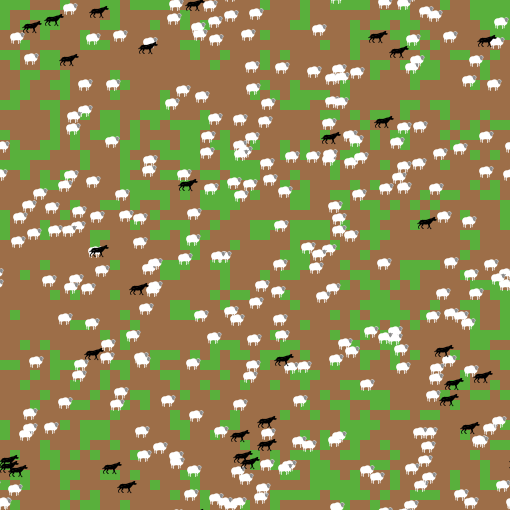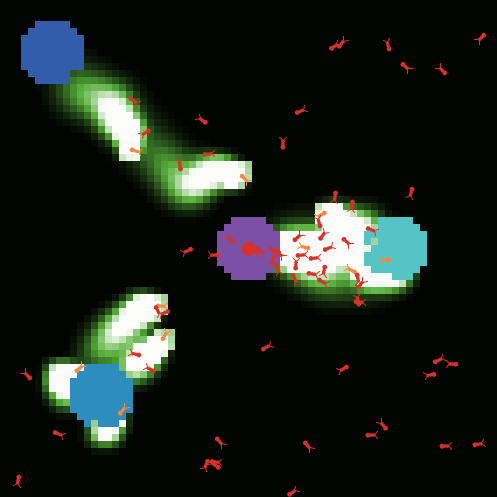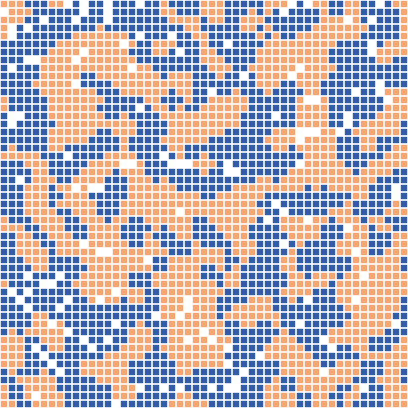to
to is used to begin a command procedure. You can think of to as a way to define a set of actions/verbs for NetLogo, such as to go, to add-money, to move, etc. We can use these procedures anywhere in the code.
Each procedure that starts with to must always be finished with the end primitive in order for it to work. Procedures can also be called from buttons! For example, using a go button (which is located on the Interface tab) runs the procedure created as to go ... end in the code tab. Let’s see that in action:
to go
ask turtles [
wiggle
forward 1
]
tick
end
Another purpose for the to primitive is to allow us to divide our code into smaller pieces. For example:
ask turtles [
wiggle ;; first turn a little bit
move ;; then step forward
]
to wiggle
rt random 90
lt random 90
end
to move
forward speed
end
See how in the first chunk of code, you are calling the turtles to wiggle, then move. Wiggle and move are then written as a command procedure. It ends up saving you a lot of space and repetition!
In the model example below, we have a very simple model with three buttons. When the setup button is clicked, the setup procedure that we created with to setup in our code is run by NetLogo, which makes our patches green and creates a few butterflies on random locations in the model. When the move button is clicked, the move procedure that we created with to move in our code is run by NetLogo, which makes the butterflies move 1 step forward in a random direction. When the grow button is clicked, the grow procedure that we created with to grow in our code is run by NetLogo, which makes the butterflies a bit larger.
Try it Yourself
What's next?
Once you mastered the to primitive, don't stop there. Check out the resources below to improve your NetLogo skills.
Published NetLogo models that use the to primitive:
Similar primitives:
create-turtles
Creates turtles with random colors and headings at the center of the world.



